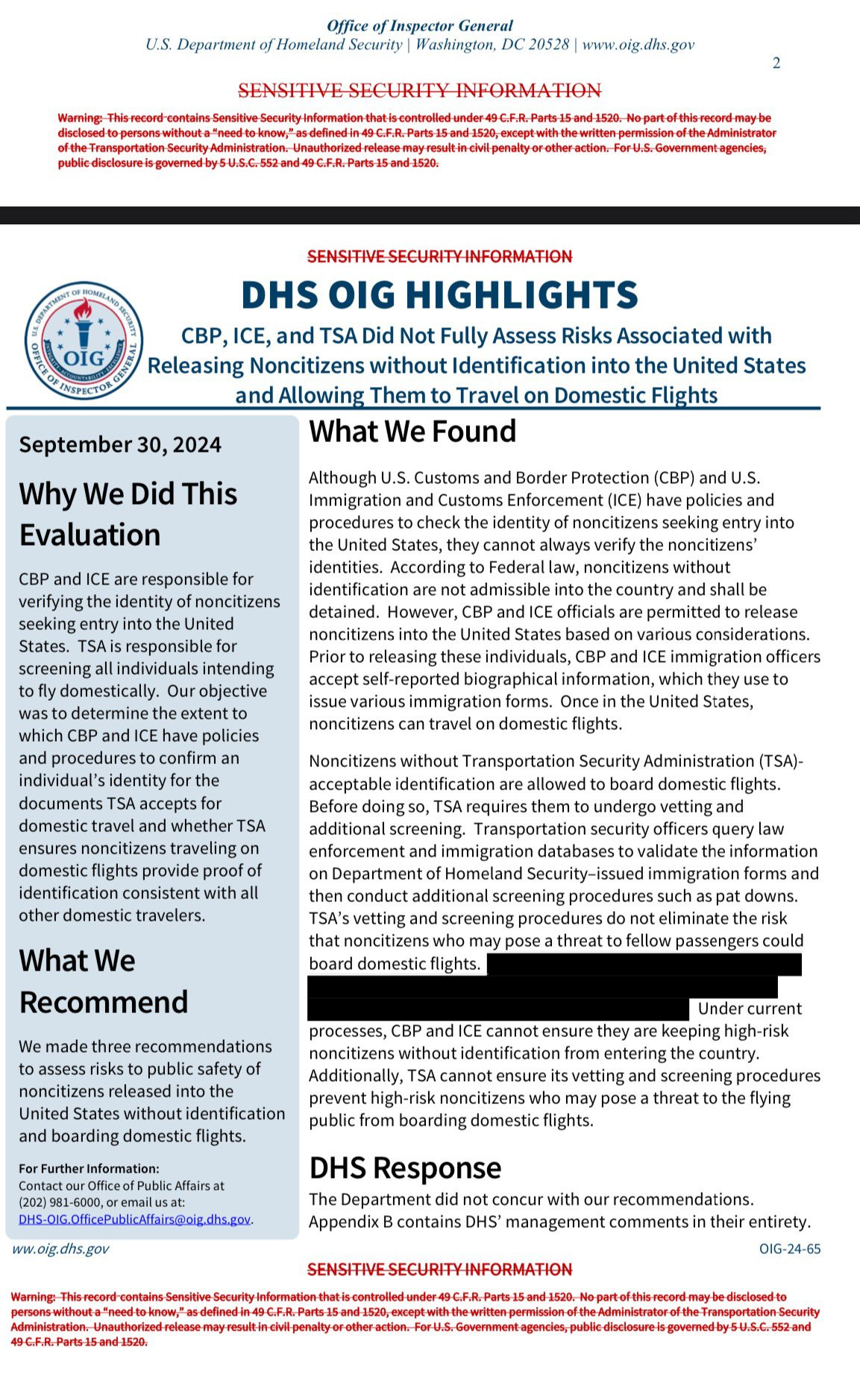A newly released and heavily redacted report from the Department of Homeland Security’s (DHS) Office of Inspector General (OIG) reveals that U.S. Customs and Border Protection (CBP), Immigration and Customs Enforcement (ICE), and the Transportation Security Administration (TSA) failed to fully assess the risks associated with releasing noncitizens without identification into the country and allowing them to board domestic flights.
The report, issued on Sept. 24, found that under current processes, CBP and ICE are unable to ensure that high-risk noncitizens without proper ID are prevented from entering the U.S. TSA, which relies on data from CBP and ICE to screen individuals, also cannot guarantee that its vetting procedures will prevent high-risk individuals from boarding domestic flights, the report said.
Consider supporting my independent journalism by becoming a paid subscriber for just $5 a month. Your contribution helps keep my content free for everyone and allows me to continue bringing you the stories that matter. You can cancel anytime, no strings attached!
Key Findings
The report cited concerns that noncitizens without identification are not admissible under federal law and should be detained. However, CBP and ICE are permitted to release individuals into the U.S. under specific circumstances. In many cases, CBP and ICE accept self-reported biographical information from migrants, which is used to provide them with immigration documents, allowing them to travel domestically without proper identification.
The OIG asked DHS for data on the number of noncitizens without ID released into the U.S. between fiscal years 2021 and 2023, but CBP and ICE were unable to provide the information. The agencies do not track whether noncitizens had identification in their databases, according to the report.

The report also found that TSA’s screening of noncitizens relies on incomplete data from CBP and ICE, raising concerns that individuals who may pose a threat to national security could be allowed to board flights. A redacted portion of the report addressed a TSA assessment of the risks of using the CBP One cell phone app for screening, but the findings were not disclosed.
Security Risks Highlighted
The OIG identified other weaknesses in CBP’s screening processes, including incidents where high-risk individuals were released into the country. These cases include a person on the FBI Terror Watchlist who was released in 2022, as well as two Afghans who were paroled into the U.S. as part of Operation Allies Welcome. The OIG noted that these individuals may have posed threats to national security.
"If CBP and ICE continue to allow noncitizens—whose identities immigration officers cannot confirm—to enter the country, they may inadvertently increase national security risks," the report warned.
DHS Response
DHS, ICE, and CBP disagreed with the report’s findings. DHS officials stated they cannot detain all individuals subject to detention, including noncitizens without ID, due to limited resources, such as bed space.
ICE said its current detention capacity of 41,500 beds does not allow for the detention of every noncitizen without identification. CBP noted that its facilities are designed for short-term detention and that it cannot legally hold noncitizens beyond the time allowed by law, even if they pose potential risks.
TSA stated that the report did not reflect its current screening policies.
The full report can be found here.




















